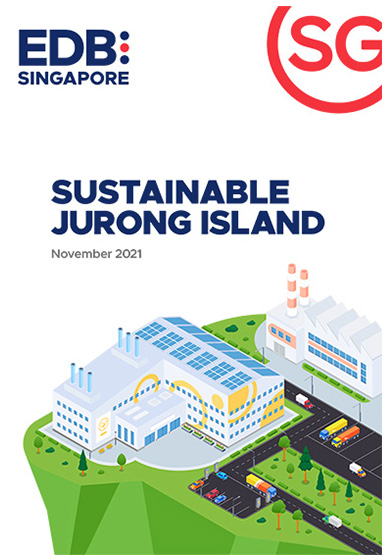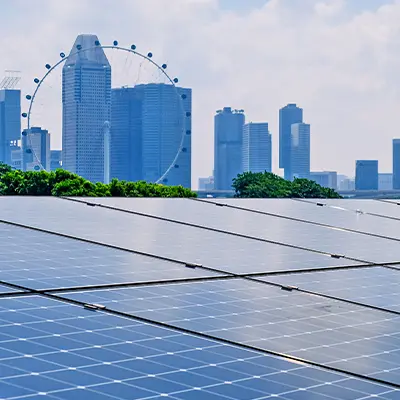In crisis lies opportunity, and this can be seen in the opportunities that could open up as Singapore attempts to wean itself off fossil fuels amid an energy crisis.
The opportunities lie not only in the renewable energy sector, but also in areas such as green finance, carbon services and green hydrogen, said panellists at a discussion organised by The Straits Times that aired on Earth Day on Friday (April 22).
One of the panellists, Dr Victor Nian, an adviser at the Centre for Strategic Energy and Resources, said there is potential for Singapore to position itself as a hydrogen hub in the future, and supply the cleaner fuel to the region.
For instance, oil refineries and petrochemical plants in Singapore could, in the future, be repurposed to produce and store green hydrogen, which refers to hydrogen fuel produced by renewables.
"Think back to the 1960s, where our philosophy of having refineries on Bukom Island or Jurong Island in serving the neighbourhood could be replicated in the hydrogen story, where we, as a country can become a hub for hydrogen production from clean energy sources, and sell them to the region," he said.
Green hydrogen, which is produced by splitting water into hydrogen and oxygen by using renewable electricity, emits no carbon dioxide during the production process, making it a cleaner fuel.
The other panellists were ST climate change editor David Fogarty; Ms Swati Mandloi, a youth delegate from Singapore for the recent United Nations climate change conference in Glasgow, COP26; and ST environment correspondent Audrey Tan.
The session was moderated by Mr Warren Fernandez, ST editor and editor-in-chief of SPH Media Trust's English, Malay and Tamil Media Group.
The discussion - aired on ST's YouTube channel and website on Friday - revolved around the theme of whether surging energy costs would spark a global rethink about the dependence on fossil fuels, and the current challenges of speeding up the adoption of renewables.
Last year, oil and fossil fuel prices soared, causing electricity bills to spike and petrol prices to rise. The war in Ukraine then worsened the world's energy crisis.
Mr Fogarty said carbon services and trading in Singapore are a growing area, since one of the key issues that polluting companies face is reducing their emissions in some parts of their supply chains.
Hence, they turn towards carbon offsets, where the companies buy a carbon credit from a renewable energy plant or a forestry restoration project to "offset" their emissions.
"The investment around those projects, and the financing (and auditing) of them is a growing area. Executing those projects on the ground also takes time and money."
Mr Fogarty added that issuing green bonds - financial instruments used to fund projects with environmental benefits - is an emerging area, and that the nation can also explore novel technologies in extracting carbon dioxide.
"Singapore is a great hub for a lot of these things. It's got the finance, it's got the technology, and it can bring in the brains to do it."
On Singapore as a hydrogen hub, Ms Tan noted that it is currently challenging to produce green hydrogen here due to the small proportion of the nation's energy mix coming from renewables.
By 2030, the aim is to have solar energy - the nation's most viable form of clean energy now - cover 4 per cent of Singapore's total electricity demand.
The 4 per cent will comprise at least 2 gigawatt-peak of solar energy, or the equivalent of powering about 350,000 households a year.
Currently, more than 95 per cent of the country's energy mix comes from natural gas, the cleanest form of fossil fuel.
Ms Tan said: "By 2030, 4 per cent coming from solar is quite small. For us to harness hydrogen in a larger way, hydrogen has to be imported, and we have to find ways to store hydrogen safely."
It was reported last year that Singapore is engaging local and international stakeholders to bring down the cost of hydrogen technology and develop global regulatory standards, to establish global hydrogen supply chains.








